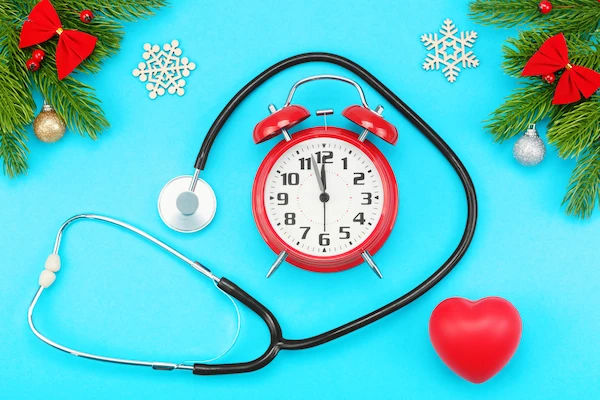- Male
- 20 Years
- 22/01/2025
I'm really worried about my heart. This morning, I had these palpitations and ended up going to the ER. They ran an ECG and did an echo, which came back normal, but the doctor suggested an ablation. I keep having palpitations even when I'm just climbing the stairs, and now I'm on these Dilzem tablets. Sometimes it feels like my heart actually stops and then starts again. Should I be concerned about this? Is there something serious going on?
Answered by 1 Apollo Doctors
It sounds like you are experiencing palpitations and irregular heartbeats. The medication prescribed to you, Dilzem tablet, contains the active ingredient Diltiazem. This medication is a calcium channel blocker that helps to regulate your heart rate and rhythm. The usual dosage for Dilzem in such cases is 120-360 mg per day, divided into 3-4 doses. Feeling like your heart stops and then starts can be concerning, and it is important to follow up with your doctor about this symptom. It could be related to the underlying heart condition that is causing your palpitations. If you continue to experience this sensation, it is recommended to seek medical attention promptly for further evaluation and management.
Dr. Kareemulla Suggests...
Consult a Cardiologist
Answered 04/07/2025
0
0

More Cardiology Health Queries
View allI've been noticing something strangewhen I'm lying in bed, I can actually feel my heartbeat, and while my heart rate seems normal, my body feels like it's shaking a bit with each beat. I got my echocardiogram results, and it shows a myxomatous mitral valve with mild MR, with measurements of LV ID at 5.7 cm and 3.8 cm, IVSd at 0.8 cm, LVPWd at 0.8 cm, and an EF of 60%. The doctor mentioned my left ventricle is slightly enlarged but not dangerous. But here's the thingwhen I stand up quickly from lying down, I get really dizzy. Could you explain what might be going on and what I should do about it?
When you suddenly stand from a lying position and feel dizzy, it could be due to a drop in blood pressure known as orthostatic hypotension. To help alleviate this symptom, you can try increasing your fluid and salt intake, wearing compression stockings, and slowly transitioning from lying to standing positions. Additionally, you may benefit from medications such as Fludrocortisone to help increase blood volume and improve blood pressure regulation. It is important to discuss these options with your doctor to determine the best course of action based on your individual health needs.
Answered by 1 Apollo Doctors
I'm really worried about my dad. He's 68 and the doctors said he has an enlarged heart. His heart rate is just 20 right now, and he had bypass surgery 4 years ago. There haven't been any problems recently, but after an echo test, they noticed his heart has gotten bigger. What should we do next?
Enlarged heart, also known as cardiomegaly, can be a serious condition, especially in individuals with a history of heart surgery like your father. A heart rate of 20 beats per minute is extremely low and can be life-threatening. It is important to seek immediate medical attention in such cases. In this situation, your father may need a pacemaker to regulate his heart rate and prevent complications. Additionally, medications such as Metoprolol or Carvedilol can be prescribed to help manage his heart condition and prevent further enlargement of the heart. The dosage will depend on his specific health status and needs, so it is important to consult with a healthcare provider for proper evaluation and treatment.
Answered by 1 Apollo Doctors
I'm a bit concerned about my homocysteine level, which is currently at 29.9. Is this considered normal, or should I be worried? What could be causing it to be so high? Any advice would be really appreciated.
Homocysteine level of 29.9 is considered high. Possible causes of increased homocysteine levels include vitamin deficiencies (B6, B12, and folate), kidney disease, hypothyroidism, psoriasis, certain medications (such as methotrexate), and genetic factors. To lower homocysteine levels, you can consider taking medications like folic acid, vitamin B6, and vitamin B12. The recommended dosage of folic acid is usually 400-800 mcg per day, vitamin B6 is 1.3-1.7 mg per day, and vitamin B12 is 2.4 mcg per day.
Answered by 1 Apollo Doctors
Disclaimer: Answers on Apollo 247 are not intended to replace your doctor advice. Always seek help of a professional doctor in case of an medical emergency or ailment.


_2.webp)


_2.webp)